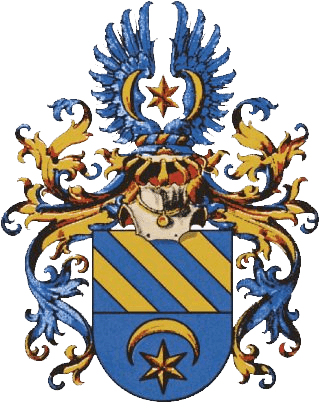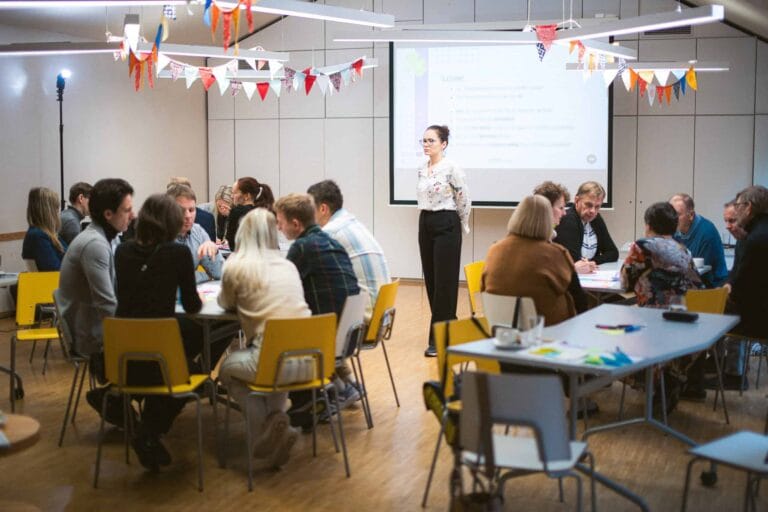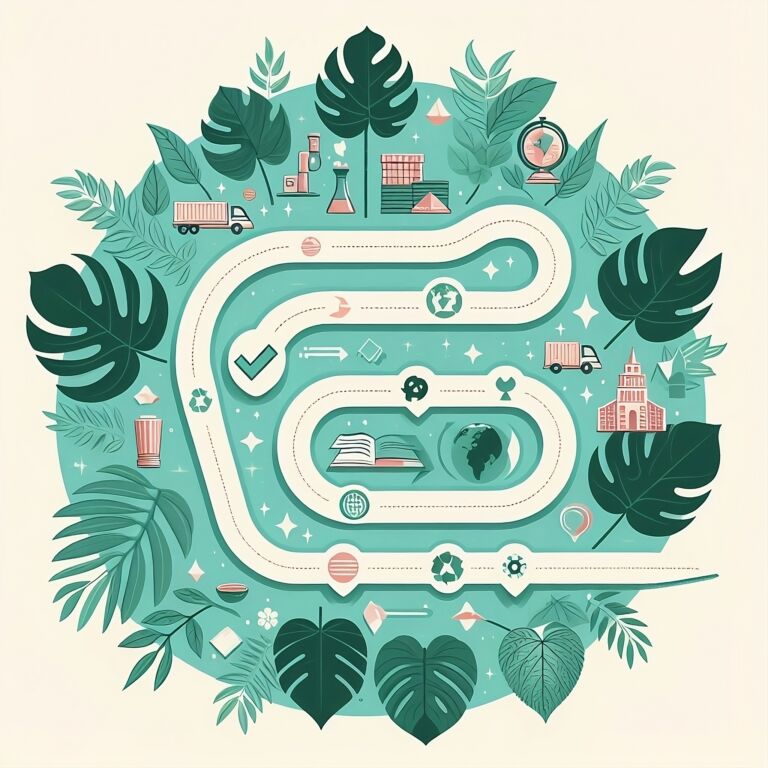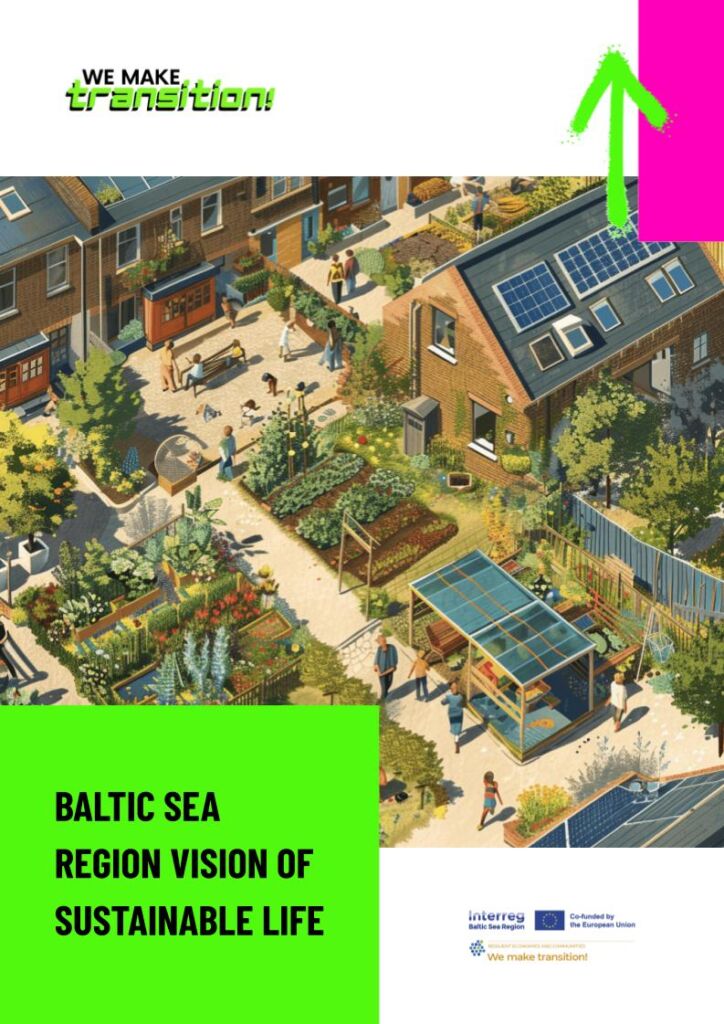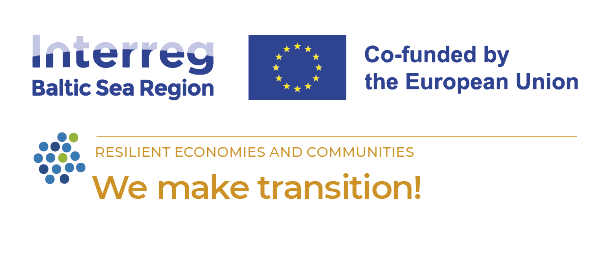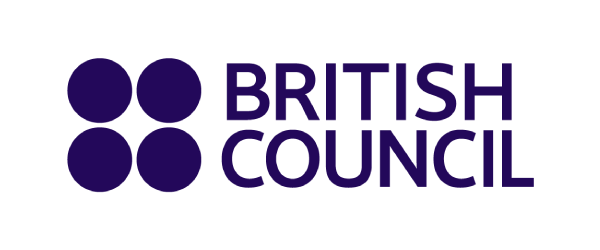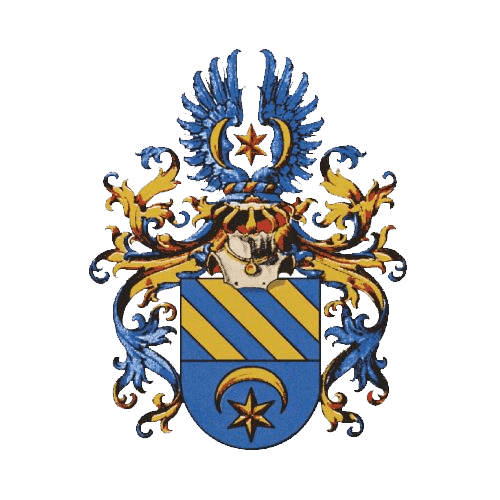VISION DOCUMENT
How does sustainable future 2035 look like from the point of view of various civil society actors? We make transition! project invited a group of change agents from BSR countries to co-create an inspiring sustainability vision and recommendations on empowering the cooperation between local authorities and civil society actors to enhance ecological and social sustainability.
In the desired sustainable future, consumption is geared towards meeting people’s basic needs. People’s mindsets have changed to prefer reusing over buying new products. The overall amount of waste has decreased due to decreased consumption and production. Popularity of sharing, swapping and renting rise over private ownership. There are circular shopping centres that include a variety of high-quality secondhand items as well as repair services, meeting points, cafes and spaces for workshops.
Manual skills and community building are strongly integrated as basic skill development in the educational system and lifelong learning. Sustainable and reliable ways to produce and distribute food rely on more diverse, decentralized and flexible solutions. Solutions like community agriculture, food collectives, co-ops & associations are popular.
Value is not only counted in money, but also in time, collaboration and sharing. The timebank model is used, which means that one hour of sharing your skills or helping others (for example gardening or taking somebody to walk) earns you one time-credit, whatever the skill or task.
THE PROCESS
We make transition! partners have selected sustainability change agents from Finland, Estonia, Latvia, Poland, Germany and Norway to co-create a joint sustainability vision and recommendations. The change agents have participated in online workshops and on 14-15 Feb. 2024 they and project partners met in Gdynia, Poland.
